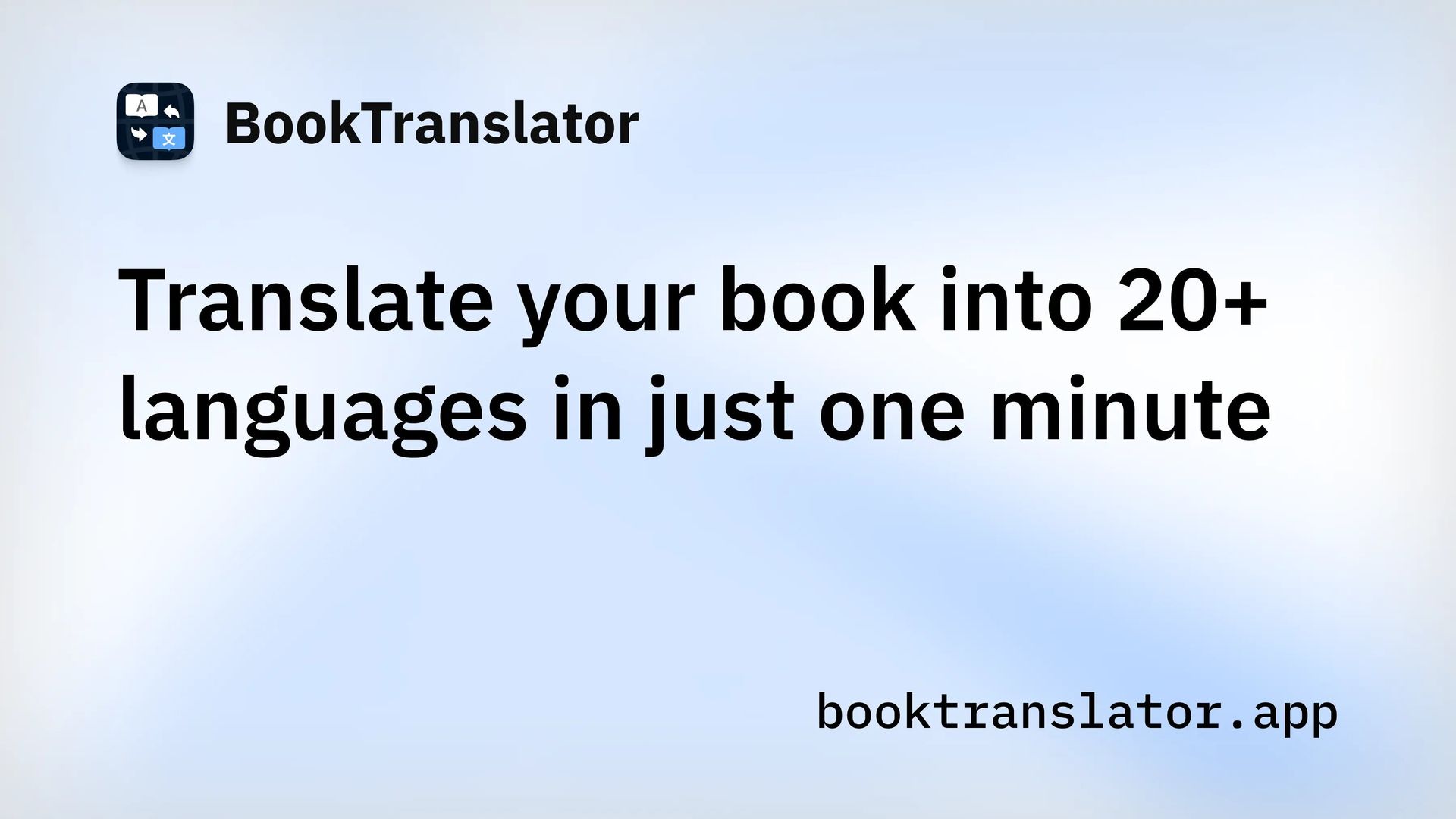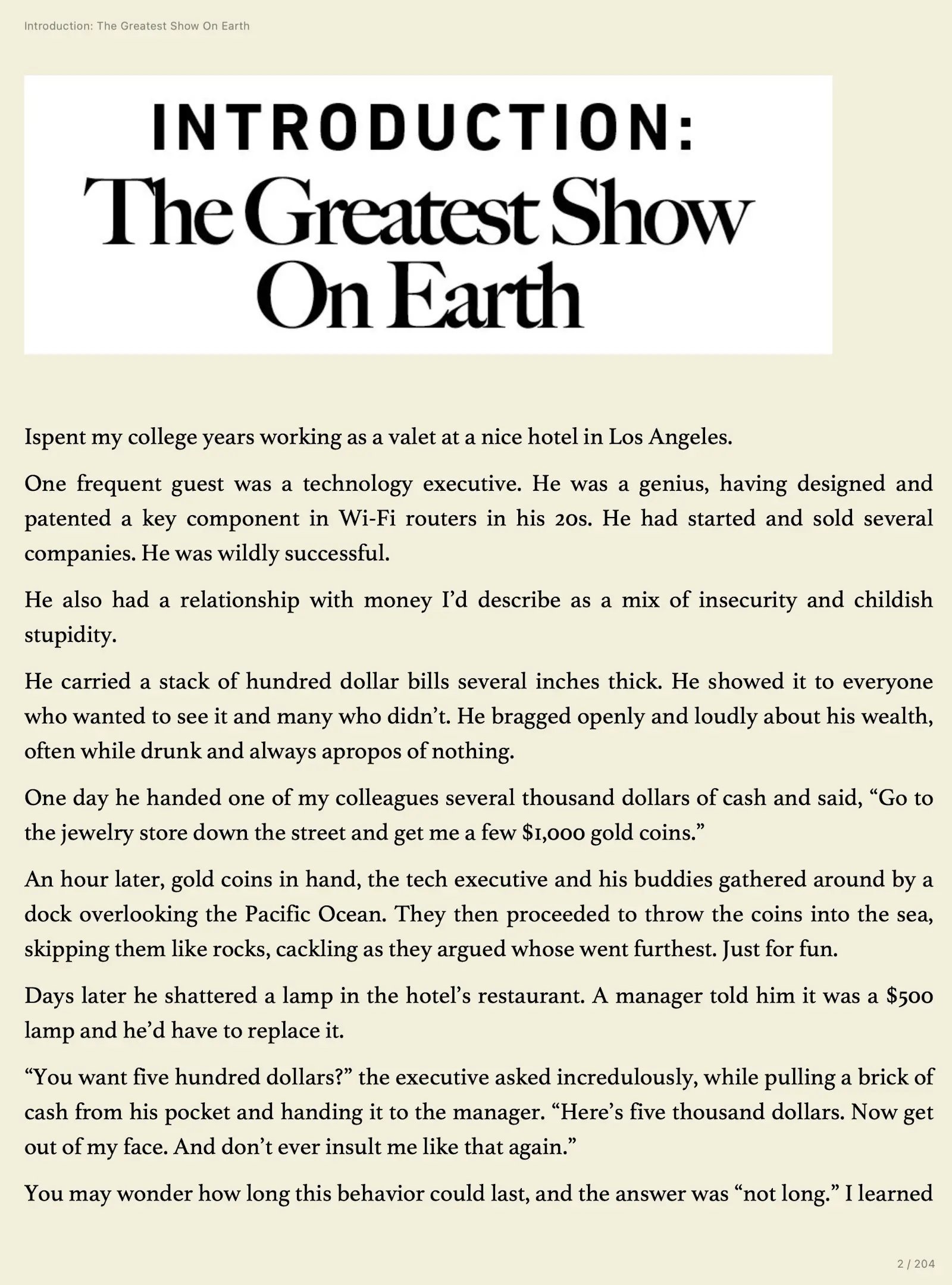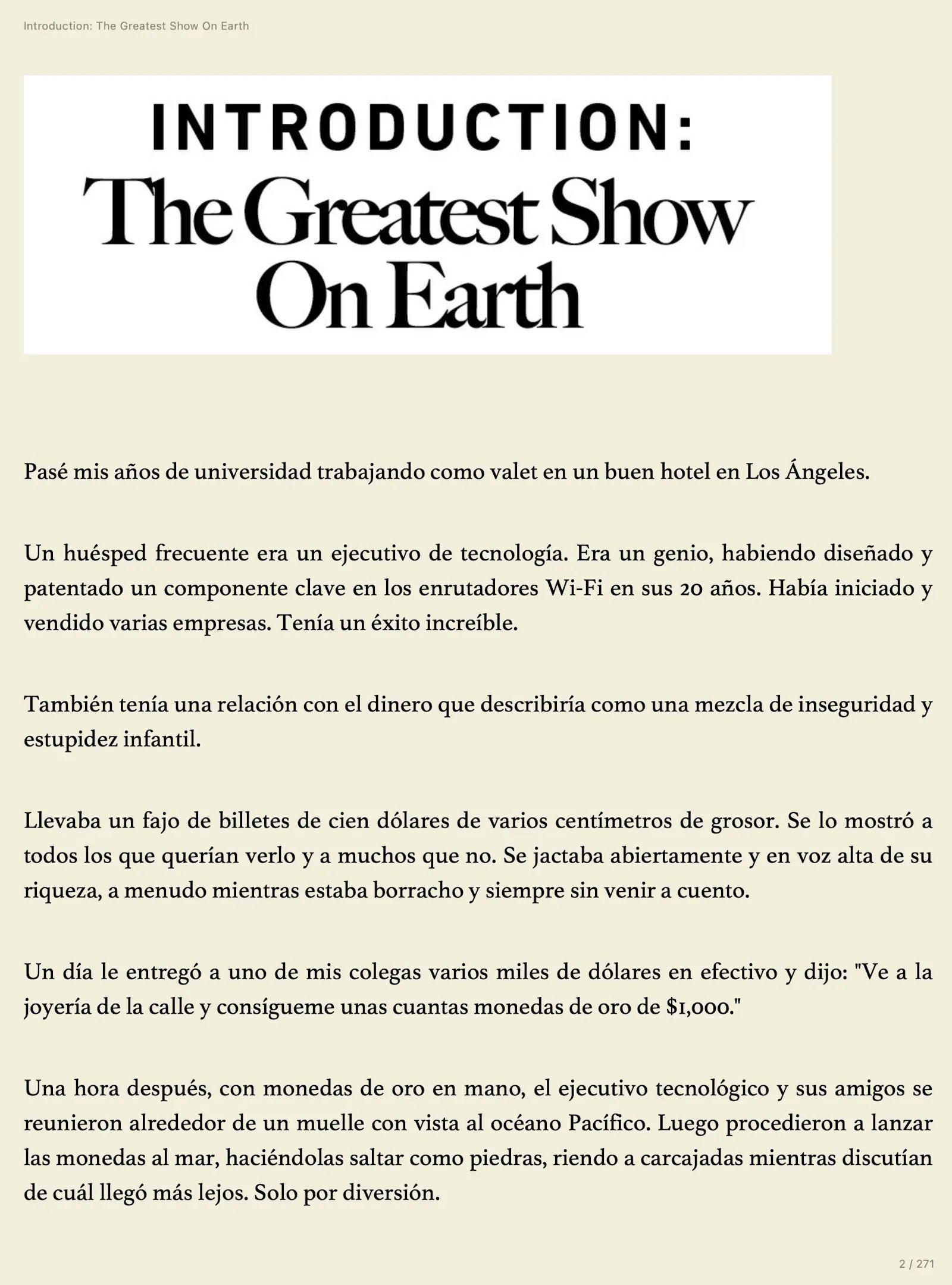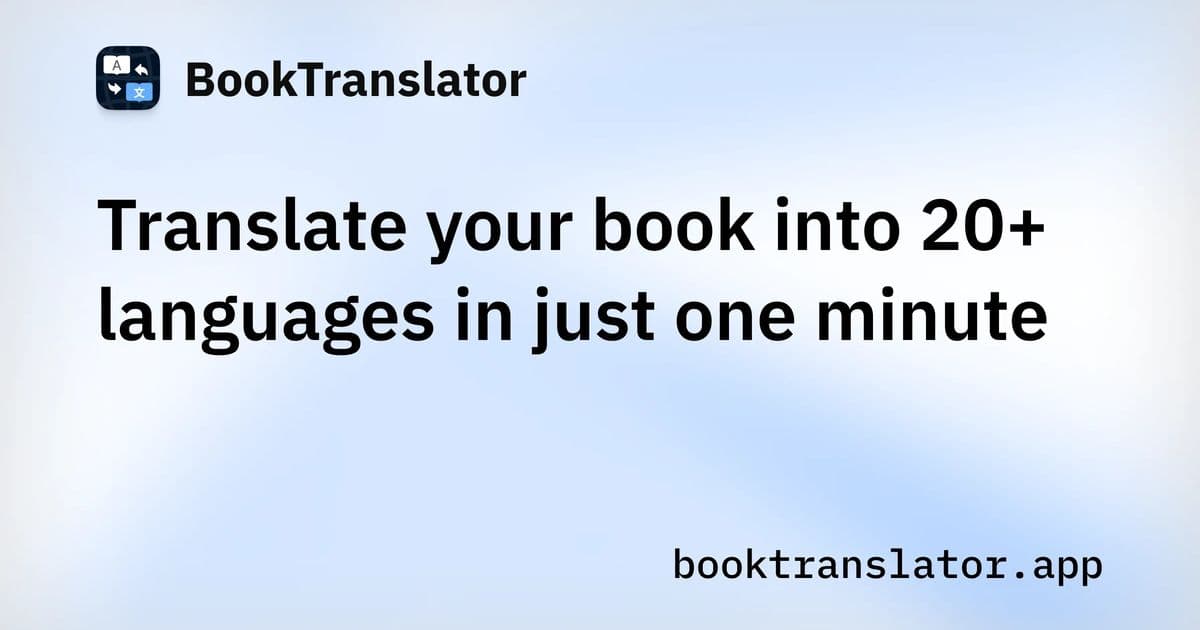A new AI service leverages the ChatGPT API to translate entire EPUB or PDF books in under a minute while preserving layout and nuance, targeting authors, publishers, and academics. This innovation could democratize global literature access but raises critical questions about accuracy and the future of human translation in creative workflows.
For decades, translating books across languages has been a slow, expensive process fraught with challenges—preserving an author's voice, handling cultural subtleties, and maintaining complex layouts. Now, a tool called BookTranslator aims to disrupt this space by harnessing the power of OpenAI's ChatGPT API, promising full-book translations in just 60 seconds. But as AI continues to infiltrate creative domains, developers and content creators are left wondering: can it truly replace human nuance, or is this merely a high-speed shortcut with hidden compromises?

At its core, BookTranslator is a cloud-based service that processes EPUB or PDF files (up to 50MB) through AI algorithms trained on the ChatGPT API. Users upload a book, select a target language from over 76 options—including Chinese, Spanish, Japanese, and German—and receive a translated version that retains the original formatting. The platform emphasizes context-aware translations, claiming to capture idioms, technical jargon, and cultural references. As one academic researcher noted in a testimonial: 'Technical terms are handled with precision, and the turnaround is impressive.' For developers, this represents a tangible application of large language models (LLMs) in document processing, where the API handles not just text but structural elements like headings, images, and footnotes.
The workflow is streamlined for efficiency: upload a file, choose a language, and pay per task or via subscription. A 'Guest' plan offers pay-as-you-go access, while 'Free' and 'Pro' tiers provide credit-based systems with discounts for high-volume users. According to the source at BookTranslator.app, translating 10,000 words costs $1.99 as a Guest but drops to $0.20 for Pro users—a 90% reduction. This cost efficiency is a major draw for indie authors and startups, like one user who stated: 'It’s life-changing for reaching international readers affordably.' However, the pricing model reveals complexities: costs scale with word count and content difficulty, and 'Pro' requires an $8/month commitment, hinting at the computational resources needed for such rapid processing.


Visually, the service showcases side-by-side comparisons to demonstrate fidelity. For instance, an original English page and its Spanish translation appear nearly identical in layout, as seen in the embedded images—critical for technical manuals or illustrated works. Yet, beneath the surface, challenges persist. While testimonials praise the AI's grasp of rhythm in children's books or precision in medical texts, literary translator Michael Thompson cautions: 'It’s a great tool for initial drafts, but human oversight remains essential.' This echoes broader industry concerns: LLMs like ChatGPT can hallucinate or oversimplify cultural nuances, potentially flattening creative works. Moreover, the tool’s reliance on a single API introduces dependency risks; if OpenAI’s models evolve or face downtime, translation quality could fluctuate.
Implications for the tech and publishing sectors are profound. For developers, BookTranslator exemplifies how API-driven automation can slash time and costs in content localization—think documentation, educational materials, or open-source projects. A startup founder highlighted its role in global expansion: 'Technical consistency across languages is invaluable.' But it also accelerates ethical debates: as AI absorbs tasks once reserved for linguists, pricing pressures could marginalize human translators, much like automation in other fields. Meanwhile, the promise of 'democratizing' access comes with caveats; translations for lesser-supported languages may lag in quality, and data privacy for uploaded books warrants scrutiny. As one publisher put it: 'The translations are so good that foreign publishers skip edits'—a double-edged compliment underscoring AI’s advancing capabilities.
In the end, BookTranslator isn’t just a tool; it’s a harbinger of how AI is reshaping content creation. For engineers and tech leaders, it underscores the urgency to integrate ethical safeguards and hybrid workflows, where AI handles scalability and humans refine soul. As borders blur in digital literature, the real test will be whether such innovations foster deeper cross-cultural understanding or merely faster, shallower exchanges.

Comments
Please log in or register to join the discussion